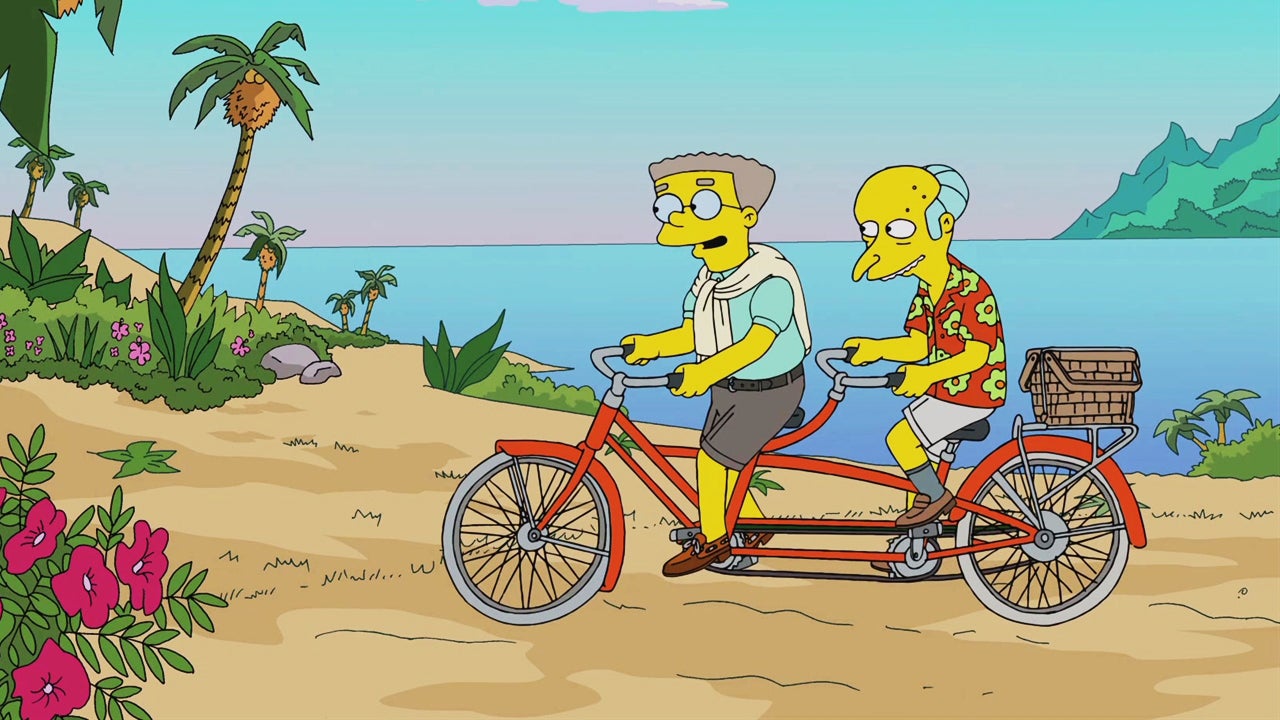Smithers coming out is just another example of The Simpsons using the zeitgeist to make up for lazy writing
Being pro-LGBT is great, but not at the expense of good narrative

They say there's no better way to ruin a joke than to have to explain it, and so it is with The Simpsons, which announced yesterday that an upcoming episode of the show's 27th season will see Waylon Smithers, assistant to and long-time admirer of Power Plant owner Mr Burns, finally come out as gay.
Showrunner Al Jean told TVLine that despite most of Springfield aready knowing Smithers is gay, Mr Burns is still clueless, which forms part of the upcoming storyline.
“We deal with that in two episodes,” he said. “We actually do a lot with Smithers this year. He gets fed up with Burns not appreciating him and considers his options.”
It's another entry in the dossier documenting the show's steady decline into blunt, ineffective storytelling, a reminder that The Simpsons is in such dire straits that a gentle nudge is far less effective in 2015 than a giant whack across the head with a comedy mallet.
Smithers' sexuality has been a running gag in the show since its early episodes – from Waylon fantasising about his boss gliding through his open window at night to him being traumatised by the mere sight of a woman's derriere. He even visited Springfield's seedy burlesque house because “My parents insisted I give it a try”.

Having him come out seems completely pointless given that, over time, the joke about him being in a closet has grown thin to the point where nobody even believes it anymore.
Ten years ago, when the show did a highly-publicised campaign promising a well-known character would be coming out, people dismissed Smithers' being the first gay resident in Springfield because, well, it was a bit obvious (it ended up being Patty, Marge's sister).
There's definitely something to be said about the changing nature of LGBT characters on TV; were a show to launch in 2015, it's highly unlikely they'd have a tormented, closeted character be used solely for a cheap gag.
Maybe the producers felt such a character was so dated it was dragging them down, but this isn't The Simpsons simply trying to get with the times - it's trying to sensationalise it's storytelling because it thinks that's the only way to stay relevant on TV in 2015.

Watch Apple TV+ free for 7 day
New subscribers only. £9.99/mo. after free trial. Plan auto-renews until cancelled.
ADVERTISEMENT. If you sign up to this service we will earn commission. This revenue helps to fund journalism across The Independent.

Watch Apple TV+ free for 7 day
New subscribers only. £9.99/mo. after free trial. Plan auto-renews until cancelled.
ADVERTISEMENT. If you sign up to this service we will earn commission. This revenue helps to fund journalism across The Independent.
The dramatic tension between Smithers and Burns – and the tease of the former getting “fed up” by the object of his desire - sounds like something binned off from a Corrie love triangle.
The Simpsons is in such dire straits that a gentle nudge is far less effective in 2015 than a giant whack across the head with a comedy mallet.
But Smithers' coming out is just one of a series of storylines designed to get people talking rather than tuning in. And the problem with focusing on creating a buzz around your show rather than within it is obvious.
From teasing a big character death last year (it was Krusty's dad, yawn) to heavily PRing the news that Homer and Marge would separate this year (they did, but it was just a dream, double yawn), the show is gaining notoriety for writing itself into corners it doesn't have the dexterity to get back out of.
That's the problem when you're a sharp, zeitgeisty animated show and you suddenly try and grab headlines with Big Relatable Issues: people either expect you to deliver, or they feel let down that you prioritise those issues over funny writing in the first place.
The Simspons wants to think it's creating watercooler moments, but all it's doing is watering down the show to the point that it's barely recognisable.
Why not switch out the shock factor for some of the smart writing that made the show popular in the first place? Some of the strongest moments relied on nothing more than emotionally honest stories – like Lisa bonding with her substitute teacher, Mr Bergstrom, then feeling a sense of abandonment when he took a job elsewhere.
Even an episode where Bart shoplifted near Christmas, while erring dangerously close to 'Hollyoaks After Dark' territory, ended up being a frank look at how young men crave independence until they have their innocence taken away from them. It's so sad watching him feel like he isn't a child anymore – and Marge's heartbreak that she's mollycoddled her son into recklessness (it also features store detective Don Brodka, one of the best one-off characters in the show's history. Kapiche).
The news of Smither's impending gay liberation comes after a disastrous weekend for LGBT film Stonewall – which, in case you haven't heard, was condemned or whitewashing its core cast and sidelining people of colour and radical trans campaigners who made the riots famous.
The takeaway from the tear-down of Stonewall was thus: being pro-LGBT is great, but it doesn't excuse you from making a crappy product. And the same is true here; whether the episode dealing with Smithers' public outing is good or not is irrelevant because it can hide behind the veneer of promoting acceptance and diversity.
So good luck, Waylon, and good luck to The Simpsons, which brazenly shows no sign of slowing down even though, and I hope the parallels are obvious here, barricading itself in a closet and staying there for a while might, weirdly, do it the world of good.
Join our commenting forum
Join thought-provoking conversations, follow other Independent readers and see their replies
Comments
Bookmark popover
Removed from bookmarks